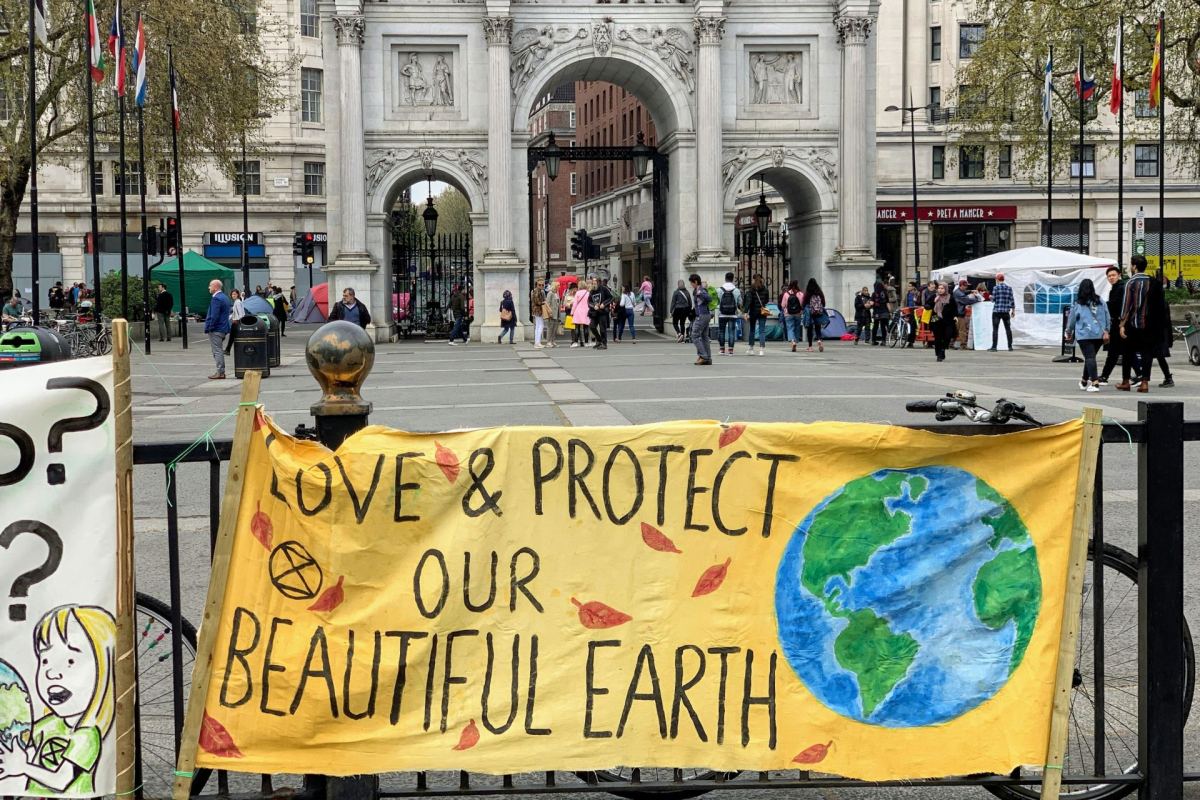Is civic space shrinking in the European Union?
Recent studies indicate worsening conditions for environmental defenders within the European Union. Despite 2024 being confirmed as the warmest year on record, global greenhouse gas (GHG) emissions continuing to rise, and climate change dominating the 2025 Global Risks Report, environmental defenders face increasing reprisals, restrictive legal frameworks, and strong attacks from companies. This situation has a "concrete and dangerous chilling effect on the exercise of fundamental rights, civil society, and democracy."
Traditionally, reports on environmental defenders have primarily focused on regions outside the EU, where activists have long encountered persistent threats. However, in 2024, multiple studies and cases revealed that civil and political rights are also coming under attack within EU Member States and the United Kingdom. This blog post synthesizes findings from various reports examining this trend, provides additional examples of the shrinking civic space within the EU, and advocates for fostering inclusive, bottom-up participatory mechanisms, along with financial support, to effectively address this issue.
Legal Background
Environmental human rights defenders (or environmental activists) are individuals or groups advocating for the protection of human rights related to the environment. Fundamental rights, including freedom of expression, peaceful assembly, and association, as enshrined in international human rights law, safeguard their activities. As a result, these actions are entitled to judicial protection, with the European Court of Human Rights (ECtHR) serving as the ultimate adjudicative body within Europe.
Several specialized legal instruments further protect environmental defenders. At the global level, it is the UN Declaration on Human Rights Defenders (1998) and the mandate of the UN Special Rapporteur on Human Rights Defenders. Regionally, in Europe, the Aarhus Convention on Access to Information, Public Participation in Decision-Making, and Access to Justice in Environmental Matters (1998) requires its parties to protect environmental defenders—defined as persons exercising their rights under the Convention—from penalization, persecution, or harassment (Article 3(8)). In Latin America and the Caribbean, the Escazú Agreement (2018) elaborates on this protection in Article 9. Both agreements are legally binding.
Under the Aarhus Convention, a rapid response mechanism in the form of a Special Rapporteur on Environmental Defenders was established in 2021, with Michel Forst appointed as the first mandate holder. The Special Rapporteur takes measures to protect environmental defenders who suffer harmful acts or are under imminent threat of such acts from states, corporations, or other actors. Any member of the public—whether acting on their own behalf or for others—as well as Parties to the Convention or the Secretariat, may submit complaints to the Special Rapporteur. Additionally, the Special Rapporteur issues reports and statements addressing critical issues.
Current Trends
In recent years, a growing debate has emerged regarding the legal boundaries, ethical implications, and societal impact of certain disruptive tactics employed by the climate movement. While physical violence against opponents surpasses the limits of peaceful protest, direct action with a tangible impact on GHG emissions is easier to justify. Nonetheless, effective legal avenues for this direct action remain constrained. Consequently, some acts of civil disobedience—such as protests targeting artworks—have garnered substantial media attention and public criticism.
In a February 2024 position paper, Special Rapporteur Michel Forst raised concerns regarding the increasing state repression of environmental activists in Europe. He identified four key dimensions of this trend: media and political discourse, legislative measures, law enforcement practices, and judicial responses. The CRI Climate Protesters Report from September 2024 further substantiates these claims.
- Negative media and political discourse – Environmental defenders are frequently depicted negatively. Rather than contextualizing their motives, media and politicians often label activists as a “threat to democracy”, or “dictatorship” or equate them to terrorists and criminal organizations. Such rhetoric serves to justify repressive measures, including the application of measures of anti-terrorism and anti-organized crime laws against activists, thereby deterring public participation in democratic processes out of fear of criminalization.
- Restrictive legislation – Several European countries have introduced new criminal offenses, harsher penalties, or outright prohibited certain forms of protest by law. For instance, in Italy, recent amendments to legislation permit imprisonment for individuals spraying washable paint on artwork frames. Similarly, the UK’s Public Order Act 2023 has introduced the offense of “locking on”.
- Policing and prosecution – The Special Rapporteur highlights reported cases of police brutality, including humiliation, intimidation, harassment, abuse of police powers, and restrictions on journalistic coverage of protests. Activists are increasingly facing prosecution on charges of forming a criminal organization. In some cases, charges appear disproportionate—for example, in France, activists who blocked the entrance to the Ministry of Ecological Transition with a banner reading "Ministry of Ecological Treason" were prosecuted for "bearing arms" due to the presence of carabiner knives in their climbing equipment.
- Judicial responses – Concerns have been raised about the misuse of preventive and pre-trial detention, stringent bail conditions, and disproportionately severe sentences, including heavy fines.
Moreover, environmental defenders increasingly encounter barriers to participation in decision-making processes, while corporate influence over policymaking persists or increases. Many raised this issue regarding the climate COP meetings (most recently in Baku) but lately even at the EU level (see The Omnibus consultation or discussions regarding NGOs funding). Financial constraints also risk undermining the work of the human rights bodies protecting environmental defenders, including those operating under the Aarhus Convention.
Furthermore, studies show systematic attempts to discredit environmental activists, often through paternalistic narratives portraying young activists as uneducated pupils and dreamers. In some countries, the green agenda itself is increasingly framed in a negative light within public discourse, and in the UK, some judges have prohibited defendants from mentioning climate change as part of their defence.
In addition, the rise of Strategic Lawsuits Against Public Participation (SLAPPs) is a further challenge. According to the CASE Report 2024, approximately 16 % of SLAPP cases relate to environmental matters. Greenpeace, with its campaigns against fossil fuels, is a frequent target. While the EU adopted an Anti-SLAPP Directive in April 2024, the CASE Report 2024 suggests that most SLAPP cases may fall outside its scope, as the Directive sets only minimum standards and applies solely to cross-border cases.
Advocating for the protection of civil space
To conclude, the reports emphasize the need for comprehensive solutions - not only to address the root causes of the ongoing triple environmental crisis but also to safeguard fundamental rights, including access to information, public participation, and access to justice in environmental matters. To this end, States should actively promote the value of peaceful protest through education, enhance police training, and reassess restrictive legislation. EU Member States must also ensure the effective implementation of the Anti-SLAPP Directive and adhere to the Council of Europe's Anti-SLAPP Recommendation from April 2024, which aligns with ECtHR jurisprudence. Likewise, experts stress the necessity of fostering inclusive, bottom-up participatory mechanisms at both the EU and national levels, alongside increased financial support to strengthen activist networks and alliances—ensuring a meaningful and lasting impact in the fight for a healthy environment and democracy.
About the author
Eva Balounová
 Eva Balounová is a postdoctoral researcher at the Centre for Climate Law and Sustainability Studies at the Institute of State and Law of the Czech Academy of Sciences, where she focuses on international and European climate change and environmental law. Also, she serves as a legal consultant in the Chamber of Deputies of the Parliament of the Czech Republic. Eva received her Ph.D. from the Charles University in Prague, for her final thesis “Legal regulation of climate protection following the adoption of the Paris Agreement” she received the Josef Vavrousek Award in 2020. She completed her master's in law at the Charles University in Prague and also at the University of Iceland.
Eva Balounová is a postdoctoral researcher at the Centre for Climate Law and Sustainability Studies at the Institute of State and Law of the Czech Academy of Sciences, where she focuses on international and European climate change and environmental law. Also, she serves as a legal consultant in the Chamber of Deputies of the Parliament of the Czech Republic. Eva received her Ph.D. from the Charles University in Prague, for her final thesis “Legal regulation of climate protection following the adoption of the Paris Agreement” she received the Josef Vavrousek Award in 2020. She completed her master's in law at the Charles University in Prague and also at the University of Iceland.
